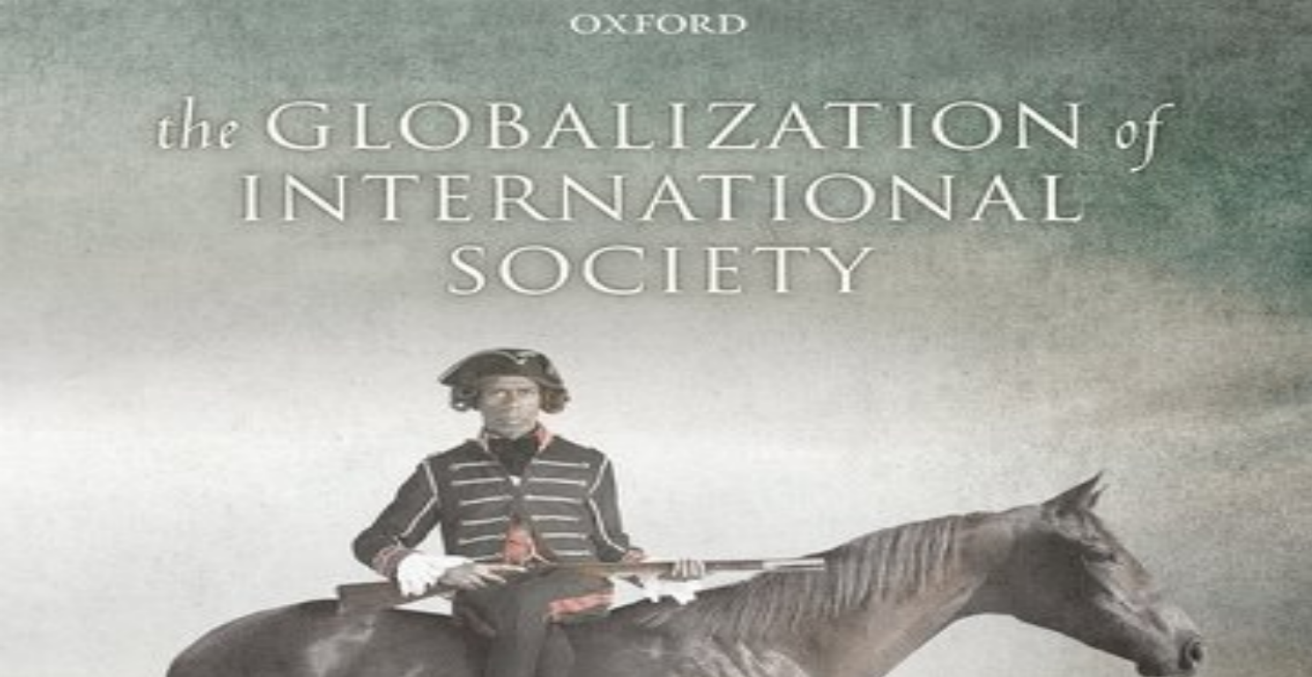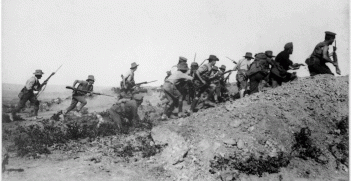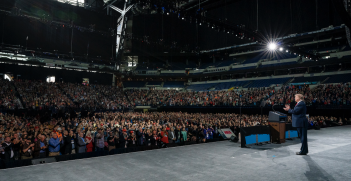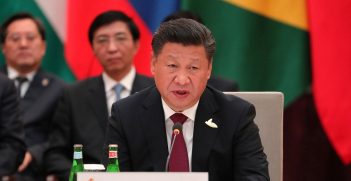Reading Room: The Globalization of International Society

The discipline of International Relations is at a crossroad. Its orthodox view of the history of modern international relations has been under criticism for some time.
While this book is a response to these criticisms, its greater significance lies in two further points. It marks an important step for IR for inter-disciplinary engagements; and it demonstrates that such engagements are essential for understanding the key issues of global governance.
At the centre of the historical International Relations orthodoxy has been the notion of “International Society”, which Hedley Bull introduced in his influential book, The Anarchical Society in 1977. Bull and Adam Watson then edited The Expansion of International Society showing how this International Society, initially formed within Europe, had expanded to the rest of the world.
At the 30th anniversary of The Expansion, Christian Reus-Smit and Tim Dunne, two prominent International Relations theorists of the current generation, called for its revision, and produced an edited volume, The Globalization of International Society.
Dunne and Reus-Smit’s introduction suggests that while the book is a response to the major criticisms of The Expansion in the past three decades, it is also a re-assertion of the significance of The Expansion’s core theme, the evolution of “the global society of sovereign states”, in International Relations scholarship and current global politics.
Dunne and Reus-Smit identify the major criticisms of The Expansion, and propose four conceptual revisions. Accordingly, they propose, first, to examine the process of globalisation, not expansion, because the former indicates not a one-way dissemination or imposition, but more complex interactions among Europeans and non-Europeans.
Second, they reject the distinction between “International Society” and “International System”, stressing both are social constructs. “International Society” is “a global governance assemblage”, and “part of the World Political System” that “embraces not only states but also other political actors”. Third, they acknowledge “the violence of imperialism”, the fatal omission in The Expansion, and instead stress unequal power and contestation. Finally, they regard culture not as “unitary”, but as diverse, even internally.
The chapters are divided into four sections. In Global Context the contributors examine how “the kernel of today’s international society first emerged in Europe” in a global context. Dynamics of Globalization analyses the “globalization of international society”, especially the implications of colonisation. Institutional Contours explores the notions and institutions of universal sovereignty, hierarchy, international law, economy, and universal human rights. Contestation looks at “conflict over international society’s basic norms in a global order”.
The contributors in these chapters largely advance the criticisms of The Expansion, and present the state of the art in the relevant fields, by incorporating critical secondary sources from global and international history and international law into their understanding of the history of international relations. What emerges is a revised, complex picture of the development of global governing mechanisms: here-polities with diverse degrees of sovereignty have interacted across the regions since the late 15th century, constantly re-negotiating these mechanisms with significant inputs from non-European actors, while the structures of hierarchy have persisted.
The book, therefore, succeeds in responding to criticism by acknowledging and incorporating critical recent works across the disciplines.
To a historian, however, it raises two serious issues, aside from the methodological issue entailed in examining historical “interactions” and “engagements” across the regions.
First, is the idea of an “International Society” of sovereign states the best way to conceptualise the version of history of international relations in the past five centuries that is presented in the book? And is it still a valid analytical tool to examine this development?
It is well acknowledged now that this “society” emerged only in the past half a century. Rather, global governing bodies may be better understood as the system that formal or informal empires or great powers have created in order to manage international affairs by developing largely inter-imperial cooperative norms, mechanisms and institutions, and that have been constantly negotiated and legitimised with the principles of equality and democracy.
Second, one notion in this book that sits awkwardly with the otherwise revised view of the development of the global governing system is the notion of the “West”. Although the book resists the essentialisation of culture, the editors and contributors assume the existence of “Western values” or “Western civilisation”, rather than define them, and see them as pitted against threats and revolts originating from the “non-West”.
In The Expansion, “Western values” defined and bound the “International Society”, and distinguished it from the “International System”. Do the editors and contributors see the diversity within “Western values”, as being manifest in the recent elections in the US, the UK or across Europe? Or are they referring to a Weberian ideal type?
The book argues that global governing norms have been created by the interactions of diverse forces across the regions. It accepts the view that certain fundamental notions of equality and freedom have been evident across the regions. If these ideas were shared by and inspired people across the regions, do they still need to be categorised as “Western”, which is a problematic, shifty and relational notion in any case?
In the age of the rise of xenophobia, racism and protectionism, caging the fundamental notions which could bind people across diverse boundaries creates an artificial demarcation for exclusion.
This not only rejects those who want to enter a society because of aspired and shared values, or blinds one to those who attack these values from within. It also gives a currency for those who use “anti-West” slogans for justifying violence and the abuse of rights.
Freeing the values which Bull saw binding International Society from the cage of the “West” may make his “International Society” regain its relevance, not as an analytical tool, but as an “ideal type”, yet to be realised because of the historical reality of imperialism, but to be aspired to by all actors on the earth.
Tim Dunne and Christian Reus-Smit (Eds.), The Globalization of International Society (Oxford: Oxford University Press, 2017). ISBN 978-0-19—879342-7’.
Tomoko Akami is Associate Professor at the School of Culture, History & Language in the College of Asia and the Pacific in The Australian National University.
This article is published under a Creative Commons Licence and may be republished with attribution.





